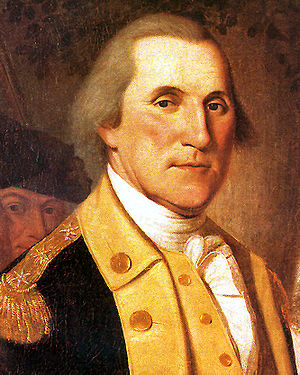In Washington’s army, the role of Adjunct General was to keep all records. All of Washington’s orders were sent though the Adjunct and within the Adjunct’s department, they were registered, made official, and handwritten copies were made. He received multiple general instructions from Washington on a daily basis, whereupon he issued the necessary orders to all brigade majors, (aide-de-camps and adjunct to the brigadiers), who then issued them to regimental commanders.
The position of Adjunct was established by the Second Continental Congress the day after the appointment of Washington as Supreme Commander. June 16, 1776, saw the appointment of several other staff positions. This included Quartermaster General, Commissary of Musters, Paymaster General, and Commissary General. The first appointed Adjutant General was Horatio Gates, later to be assigned to Joseph Reed after Gates was promoted to Major General and sent north to replace General Sullivan.

Aides to Washington acted as messengers with the military secretary, the first being Joseph Reed, astute lawyer of Philadelphia, performing most of the correspondence duties. In 1775, Washington’s aides were referred to as his ‘family,’ a collection of important young politicians and members of influential families. At different times this perceptive group of men consisted of Thomas Mifflin, (Philadelphia merchant and member of the First Congress), Joseph Reed, John Trumbull of Connecticut, Edmund Randolph, George Baylor and Robert Hanson Harrison of Virginia.
The role of Adjunct in the Continental Army did not follow the British model for Adjunct. The British Adjunct worked closely with the Secretary at War, had the responsibility for discipline, the compilation of rolls and rosters and the supervision of drills and clothing. However, the temporary British staffing of Adjunct General that the British appointed for each campaign and expedition did act as a model for the Continental design. In that capacity, the Adjunct handled guards, details, paperwork, and communicating orders. Only the formation of the infantry into line of battle was different. That role, in the American army, was handled by the Quartermaster General.

The Adjunct was assisted by a General of Brigade or Major thereof, plus a detail of lieutenants and sergeants who acted as messengers or couriers. As such, the Adjunct’s authority extended to all lower echelons of command.
Gates had a free hand in establishing administrative procedures that were continued by other Adjuncts. Difficulties in compiling the vast number of informational details and returns from Brigadiers and Regimental commanders resulted in the introduction of printed forms and regularized procedures that aided a very demanding position immensely.
If you would like to read more on the American Revolution, check out these Free Previews of Great Books on Amazon
Shades of Liberty is the exciting new action-packed series that chronicles African Americans who fought in the American Revolutionary War
Also of interest on Revolutionary War Journal
General George Washington’s Explosive Temper Helped Shape the Man Who Forged a New Nation
American Revolutionary War Cockades in Washington’s Army
RESOURCES
Risah, Erna, Supplying Washington’s Army. 1981 Center of Military History, U.S.Army Wash., DC
Wright, John W., “Notes on the Continental Army,” The William and Mary Quarterly, Second Series, Vol 12, No 2 (April 1932) pp 79-103
Jackson, Ronald Verne, Officers of the Continental Army. 1988 North Salt Lake Publ., Utah
Records of the Adjutant’s General Office. Record Group 94A ca. 1775-1928



